 I've been meaning to read a Laski for a long time, and I finally picked this book out of my shelf, just to help me return to the world of reading - one of my many loves that I've been ignoring recently. And on finishing it, I was gently reminded as to why I love reading so much.
I've spent the past couple of months literally obsessing over things, and trying to make a life-changing decision (career-wise). However, while reading (and on finishing) this book, I almost immediately started focusing on the points it raises and the questionable character of this book's protagonist. Annoyingly, I can't seem to make my mind up about where I stand.
I've been meaning to read a Laski for a long time, and I finally picked this book out of my shelf, just to help me return to the world of reading - one of my many loves that I've been ignoring recently. And on finishing it, I was gently reminded as to why I love reading so much.
I've spent the past couple of months literally obsessing over things, and trying to make a life-changing decision (career-wise). However, while reading (and on finishing) this book, I almost immediately started focusing on the points it raises and the questionable character of this book's protagonist. Annoyingly, I can't seem to make my mind up about where I stand.
On the eve of Graham's departure to Cairo for an office job in the midst of the War, his wife (Deborah) and he are lying in bed talking. Graham is likely to be away for a few years, and right up front, he tells Deborah that while he doesn't think abstinence is likely, he will promise not to fall in love with anyone else, thereby remaining faithful to his wife. Deborah, the model wife, on the other hand, promises to be faithful on all fronts, and devote her time to looking after their baby, Timmy. Yet, within days, Deborah is bored to death by the banalities of life as a mother and home-maker, and it only takes minimal persuasion from her mother for Deborah to abandon life in the small Hampshire village, and head to London for an office job.
Her first day in London results in a drunken one night stand, which she is disgusted by, and returns home and devotes herself to Timmy. In general, she has a better temperament, much to the relief of her mother as well as her housekeeper, Mrs. Chalmers. However, she returns to London soon after, and shares an apartment with her college friend, Madeleine, leaving Timmy in the capable hands of Mrs. Chalmers. Initially, she spends the evenings alone in the apartment, despite Mady's best efforts to coax her into the life of glamour: going to parties and having fun, adamant that she should not even be tempted to be unfaithful to her husband. At this point, I sympathised with her, despite her abandoning her son, and looking for a more exciting life in London during the war.
Her adamance crumbles though when Joe, a married American, knocks on the door of her apartment, and convinces her to go out for dinner. While Graham promised Deborah that he would not fall in love, Joe's promise to his pregnant wife was the inverse, i.e. he would not cheapen his relationship with his wife by sleeping with cheap women. They both appear to be on the same page when it comes to their marriage and their thoughts on infidelity. They do sleep together though, which they justify by saying they are still faithful to their respective spouses, as they are not in love. Many expensive presents and dinners and drinks later, the line between love and companionship blur, and Deborah is very much in love with Joe. Yet, when he has to leave the city, Deborah accustomed to a life of glamour and ostentation, finds another lover and then another - which is all too disturbing. It gets sickeningly worse when she asks men to visit her at the her cottage in Hampshire over the weekends, and it's evident that she's lost all her moral standards and naivety when she requests one of the men to teach her how to be a good mistress - only because it's a trait that Mady possesses, and Deborah envies that. The way she convinces herself that she's not in the wrong and justifies each and every action of hers is mind-boggling, for initially she does come across as someone with high principles and moralities. One can account for a weak character easily being dispossessed of all their virtues, but someone who is as uptight and "holier-than-thou" as Deborah morphing into a greedy tart almost seems to defy logic.
Overdrawing from her bank account, moving from man to man, to the extent that one man introduces her to another, and manipulating men at will to buy her fancy things and take her to restaurants and clubs which Graham would never be able afford seems to business-as-usual for her, and this hedonistic superficial lifestyle is all she cares about. Even her son takes second place. Yet, she manages to justify it.
"You're at least the third person," she said, "who has asked me if I mightn't be better if I went home to my chee-ild. Well, darling, that's just one of the things I've really thought out for myself and I know it's better to be happy than unhappy, and not only for me but for my baby as well. I like this sort of life, in fact, I love it, and seeing as how I'm hurting no one and doing myself quite a lot of good, I rather think I'll carry on with it. I've come to the conclusion that conventional morals were invented by a lot of unattractive bitches to make themselves feel good."
One does wonder though: is it the aftermath of war that prompts people to abandon their principles? Or, is war just an excuse for people to let loose their inner inhibitions an do what they want? If Graham hadn't been called up, would things have turned out differently, or was Deborah only looking for the easiest way out of a life of commitment and stability only to plunge into glamour and deceit? And, how exactly is it, that people who initially come across as so prudish are so quick to turn themselves into the "anti-prude", driven by envy and hedonism, and then, even justify it? Or, does the need to justify the actions arise from the prudishness, or the need to believe that they haven't done any wrong?
I was very much in love with Graham when I married him, conceded Deborah, who was determined not to be one of those low girls who denied a love as soon as it was over, but there's no reason why the person who suited you at twenty should still be the right person for you at twenty-five, when you've both developed and changed and in different directions too.
But honestly - the way Deborah's character spirals downwards is scary, and just... worrying. The transformation from naive and innocent to vice is so rapid, that I couldn't help but feel slightly overwhelmed and contemplative. Is it only a matter of circumstance? Can circumstance really justify this sheer selfish extravagant hedonism? And with no regrets? Actually, I lie - Deborah did end up regretting the fact that the war had ended, and she would be forced to go back to the mundane life of hers, and leave behind the thrills of London.
According to the introduction, this book is not entirely fictional, but an account of someone Laski knew who did transgress similar to Deborah. Initially, it was written under the pseudonym Sarah Russell, as, according to Laski's daughter, Laski was "fascinated and upset at seeing what the war had done to this person" but didn't want the person to figure out that she was the anti-heroine of the book. The person Deborah's character was inspired by managed to get a divorce from "Graham" and she re-married a rich man - probably one who was able to afford her extravagant way of living, and who liked showing off his trophy wife (the last bit's pure conjecture on my part).
I loved this book, and I really do want to read some more books by Laski. There are four published by Persephone, so I guess I have three more to go. Which would you recommend next?
 Yay! I've finished all of Sarah Waters' novels. That's the first thought that crossed my mind after I finished this book, and it was immediately followed by a pang of disappointment, for now I have to wait for her next book to be released, before I can lose myself in one of the wonderful worlds she masterfully creates.
Tipping The Velvet is Sarah Waters' debut novel, and it's quite impressive. Set in Victorian England, this is a coming-of-age story written in first person, where the narrator is Nancy Astley, or simply, Nan.
Yay! I've finished all of Sarah Waters' novels. That's the first thought that crossed my mind after I finished this book, and it was immediately followed by a pang of disappointment, for now I have to wait for her next book to be released, before I can lose myself in one of the wonderful worlds she masterfully creates.
Tipping The Velvet is Sarah Waters' debut novel, and it's quite impressive. Set in Victorian England, this is a coming-of-age story written in first person, where the narrator is Nancy Astley, or simply, Nan.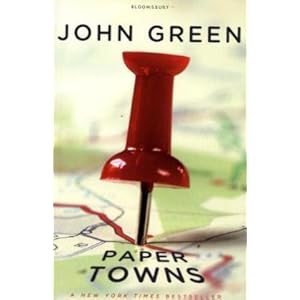 It feels like ages since I've read a young-adult book, so when I read a
It feels like ages since I've read a young-adult book, so when I read a  After reading
After reading  Sometimes I wish I was intelligent enough to get into Mensa. Well, maybe not quite Mensa, but I do wish things came more easily to me than they do - things that take some people around me a just couple of hours take me a couple of days, at least, and it frustrates the living daylights out of me.
And sometimes, you just need a book like Flowers of Algernon to put things in perspective. Charlie Gordon has an IQ of just 68, but he yearns to be "intelligent," so much so that he's taking classes to learn how to read and write. He lives alone, and supports himself by working in a bakery as a janitor, where he has lots of "friends."
Sometimes I wish I was intelligent enough to get into Mensa. Well, maybe not quite Mensa, but I do wish things came more easily to me than they do - things that take some people around me a just couple of hours take me a couple of days, at least, and it frustrates the living daylights out of me.
And sometimes, you just need a book like Flowers of Algernon to put things in perspective. Charlie Gordon has an IQ of just 68, but he yearns to be "intelligent," so much so that he's taking classes to learn how to read and write. He lives alone, and supports himself by working in a bakery as a janitor, where he has lots of "friends."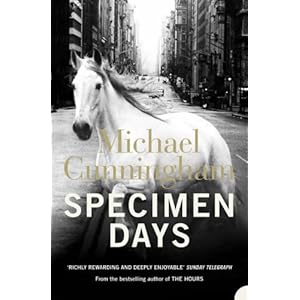 I absolutely adored Cunningham's
I absolutely adored Cunningham's 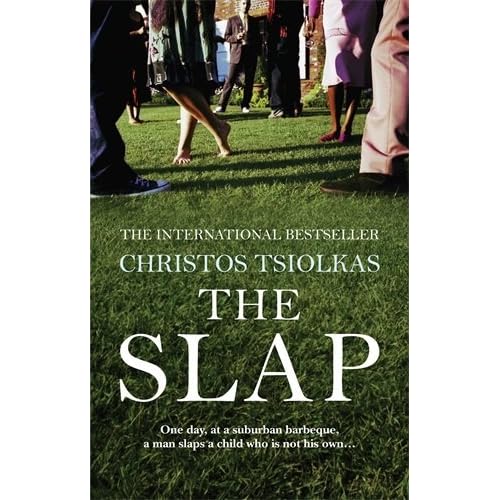 A Gen-X story, The Slap is set in Melbourne with a Greek family at the pivot point. Hector, the protagonist, is married to Aisha, an Indian girl. The two of them are the envy of their friends, set in their perfect lives, with two children. Of course, there is no such thing as perfection, once you peel away the layers, but on the face of it, they are pretty much "perfect." Aisha is vet; Hector is a bureaucrat.
The two of them host a barbecue one afternoon, inviting their friends and family as well as the children. Disagreements between the kids (Spiderman on TV?), unease with the in-laws, and tensions building between some friends sums up the afternoon, although again, on the face of it, everyone seems to be having a good time. But then, the facade falls when Harry, Hector's cousin, slaps a brattish four-year old across the face, and that's the tipping point.
A Gen-X story, The Slap is set in Melbourne with a Greek family at the pivot point. Hector, the protagonist, is married to Aisha, an Indian girl. The two of them are the envy of their friends, set in their perfect lives, with two children. Of course, there is no such thing as perfection, once you peel away the layers, but on the face of it, they are pretty much "perfect." Aisha is vet; Hector is a bureaucrat.
The two of them host a barbecue one afternoon, inviting their friends and family as well as the children. Disagreements between the kids (Spiderman on TV?), unease with the in-laws, and tensions building between some friends sums up the afternoon, although again, on the face of it, everyone seems to be having a good time. But then, the facade falls when Harry, Hector's cousin, slaps a brattish four-year old across the face, and that's the tipping point.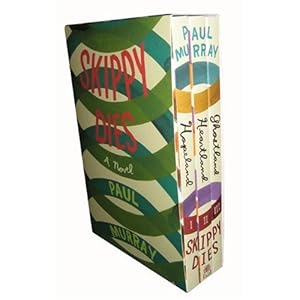 Paul Murray's second book, Skippy Dies, has been long listed for the
Paul Murray's second book, Skippy Dies, has been long listed for the 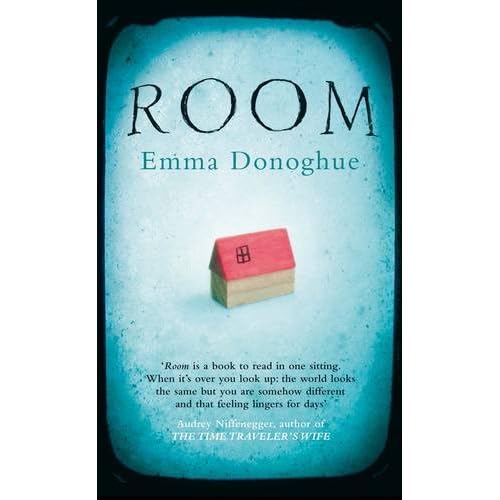 This is probably one of the most gripping books I've read this year. I almost feel guilty that I didn't take Audrey Niffenegger's advice, scrolled across the book cover:
This is probably one of the most gripping books I've read this year. I almost feel guilty that I didn't take Audrey Niffenegger's advice, scrolled across the book cover:
 Melancholic - that's the first word that came to my mind when I finished this book. I'm guessing that's how Helen, the protagonist, felt for a major part of her adult life. Her husband, Cal, had been on the Ocean Ranger that sunk in 1982, off the coast of Newfoundland - there were no survivors.
Fast-forward to 2008, which is when this book starts: Helen, now a middle-aged woman, is battling loneliness and misery, as she tries to find some kind of solace in looking after the grandchildren and sewing beautiful wedding and prom dresses as a career. She's tried her hand at online dating, after being persuaded by the children; she's tried yoga; working in a corporation and all in all, it just sounds like she's tried a myriad of things to get over the grief - but to no avail. Does one ever actually get over losing a loved one?
Melancholic - that's the first word that came to my mind when I finished this book. I'm guessing that's how Helen, the protagonist, felt for a major part of her adult life. Her husband, Cal, had been on the Ocean Ranger that sunk in 1982, off the coast of Newfoundland - there were no survivors.
Fast-forward to 2008, which is when this book starts: Helen, now a middle-aged woman, is battling loneliness and misery, as she tries to find some kind of solace in looking after the grandchildren and sewing beautiful wedding and prom dresses as a career. She's tried her hand at online dating, after being persuaded by the children; she's tried yoga; working in a corporation and all in all, it just sounds like she's tried a myriad of things to get over the grief - but to no avail. Does one ever actually get over losing a loved one? I apologise for my thoughts on this book at the very outset. I'm going through a bit of a stressful phase right now, and while normally, it doesn't affect the way I approach books, I'm not completely convinced that it hasn't this time 'round. I mean, The Long Song was longlisted for the Orange Prize, and it's on the Booker longlist as well. It's got to be a good book, right?
Well, I didn't finish it, and it wasn't for lack of trying! I put it aside at 150 pages - my edition had 308 pages, so I did read about half of the book, and it failed to engage me at any level. Strange, because the subject matter is intense and well, more often than not, I end up empathising and sympathising with the protagonists and narrators of such stories. This time - absolutely nothing.
I apologise for my thoughts on this book at the very outset. I'm going through a bit of a stressful phase right now, and while normally, it doesn't affect the way I approach books, I'm not completely convinced that it hasn't this time 'round. I mean, The Long Song was longlisted for the Orange Prize, and it's on the Booker longlist as well. It's got to be a good book, right?
Well, I didn't finish it, and it wasn't for lack of trying! I put it aside at 150 pages - my edition had 308 pages, so I did read about half of the book, and it failed to engage me at any level. Strange, because the subject matter is intense and well, more often than not, I end up empathising and sympathising with the protagonists and narrators of such stories. This time - absolutely nothing. About five years back, with the launch of the iPod Shuffle, Apple declared "random is the new order" to the world, as "life is random" so we should "give chance a chance."
What does any of this have to do with Black Swan Green? Well, nothing, really! However, it does have a lot to do with the way I've approached the works of David Mitchell - Unlike some book bloggers (e.g.
About five years back, with the launch of the iPod Shuffle, Apple declared "random is the new order" to the world, as "life is random" so we should "give chance a chance."
What does any of this have to do with Black Swan Green? Well, nothing, really! However, it does have a lot to do with the way I've approached the works of David Mitchell - Unlike some book bloggers (e.g.